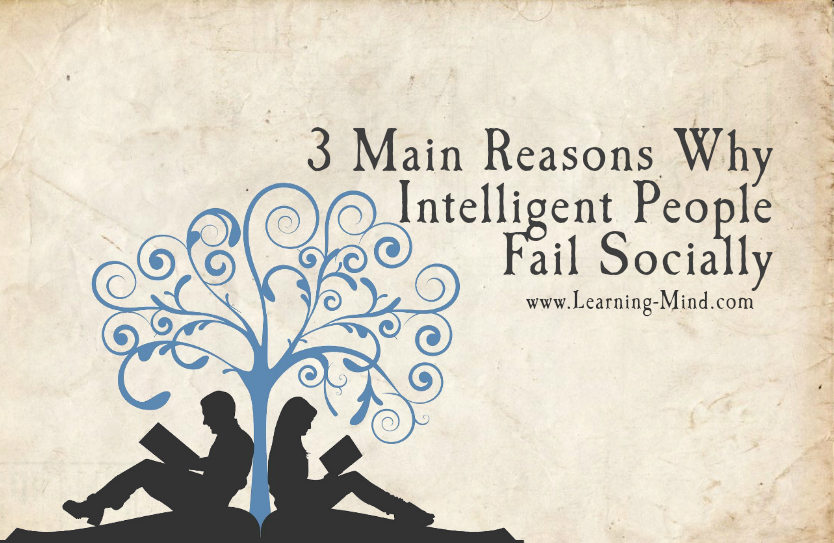
There are many kinds of intelligence, but some people with high IQ levels seem to struggle more with social situations. However, learning to be socially adept is a skill, just like any other, and so can be learned.
People with high IQ levels spend a lot of time in their heads thinking through new information. They like to be sure that they have the right answers before stating opinions, for fear of saying something that is not completely accurate or that they might regret later.
However, social situations are not about accurate information and definitive opinions but sharing ideas and values and bonding over common interests.
In addition, intelligent people have usually received a lot of attention for being smart and this can become the only way they know to win approval from others. However, in social situations, trying to impress others rarely works.
People socialize to bond with others and enjoy their company. Look at social situations as a way to learn about people and to make connections rather than an opportunity to impart knowledge or impress others. This can help improve social skills and make social situations more fun.
Intelligent people may have been told that they are not good socially and this can become a self-fulfilling prophecy. When we think we are not good at something, it can make us anxious and this anxiety can make social situations even harder.
But socializing is a skill that can be learned and the best way to get better is to practice. Start with small groups of friends who have similar interests to you and try to relax and enjoy the company of others.
Socializing in a situation where conversation is not the main focus is also helpful. So join in with friends who are doing an activity, such as ten-pin bowling, cooking or hiking. Socializing in this way will mean that the activity is the focus rather than the conversation and the activity itself also provides an easy topic for discussion.
People who struggle socially often worry that they will say or do the wrong thing and make a fool of themselves. To overcome this, try to switch the focus to the other person rather than thinking about yourself. The easiest way to do this is by asking questions of other people.
When you are introduced to someone new, you can start a conversation about the mutual acquaintance who introduced you, asking questions about how they met and then go from there. You can also ask people about their interests or talk about the event you are attending.
If you already know something about them, such as the kind of job they do or that they have young children, you can open with that. If not, you can ask them what they do for a living. Be open and interested in what they have to say, respond to them with phrases that encourage them to share more information.
In asking questions, be careful not to fire them too quickly so that the conversation becomes an interrogation. Try to find subjects you are both interested in so that the conversation can develop a natural flow. Of course, it is good to share something of yourself, too, as conversations need to be a two-way thing, but keep your focus on the other person and learning more about them.
Human beings are social animals and as such, it is important for us to feel a connection to others. This means it is well worth developing good social skills as these can help us to reduce feelings of stress and improve our sense of self-worth and well-being.
And of course, socializing can help us learn new things, look at the world from a different perspective and have fun.
Do you know people with high IQ levels? How do they behave in social situations? Are you one of them? Feel free to share your experiences in the comment section below.
View Comments
I think a lot of those ideas about how to practice social skills are correct but don't address that we feel like that kind of interaction is negative, not positive. How is useless talk about useless things a thing i should want to put in my emotional vocabulary? I'm trying to be a better person and that seems like the opposite.
I see your point, but I think that finding out about other people can be the first step in getting to know them and you can then move on to deeper and more meaningful conversations.
First of all, I'd like to thank you for this amazing article. However, I try to show my interests to other people by asking questions the same way you mentioned in the article, but some of them react negatively. Either because they do not want to share their private life, or they consider it as a kind of inquisitiveness which makes me slow the rhythm of the conversation and sometimes stop it.
Mensans have a disproportionate number of introverts, who normally are only about 20% of the general US population. It might be that they self-select for that group but you also have to score high enough on a proctored test to join. Introverts aren’t as comfortable being socially outgoing so are less likely to practice those social skills as much.